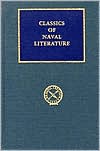

 |

|

The average rating for Running the Blockade: A Personal Narrative of Adventures, Risks, and Escapes during the American Civil War (Classics of Naval Literature Series) based on 2 reviews is 3.5 stars.
Review # 1 was written on 2017-11-12 00:00:00 Mikhail Prokhin Mikhail ProkhinI read this book when doing research for a forthcoming book of mine about Liverpool (England), but found it such a fascinating and thought-provoking book that I had to review it. Written in 1896, it describes the adventures of the author, Thomas E. Taylor, from 1861 - 1865, when he was running the blockade of Southern U.S. Ports in the American civil war. To declare my hand (ideologically) I am on the left and an erstwhile Hippie, so I am firmly of the side of the North in this conflict. The act of slaveholding is so utterly barbaric that anyone who finds any sympathy with it is no friend of mine. Having put those cards on the table, I can turn to the book. Taylor was a junior employee in a Liverpool merchants when the civil war started. Liverpool (which had been a major slaving port in the previous century) was suffering somewhat from the blockade, as Southern cotton had been a major commodity that was flowed through the port and on to Manchester for spinning. He took the post of 'supercargo' (owner's representative on a merchant ship) on the 'Despatch' - an old and badly maintained ship that did not manage to run the blockade, but the experience allowed him to take the same position on the 'Banshee' which was the first purpose-built blockade runner - a steel-built steam / sail ship that was low on the water, able to run into shallow harbours and designed for speed. The book details the voyages he made on this and later ships, the management of the ships, the fights, the financial returns, and some musings on the politics and personalities involved. In general it's a good read, although the condescending attitude to African peoples (both slaves and freemen) will make most people wince. But what I found fascinating was the attitude to both race and politics, both of which are more nuanced that I would have expected. For example - Once, when he ran into Wilmington an escaped slave stowed away on the ship for the return journey. He was discovered on the outward voyage to Nassau (in the Bahamas - a neutral port). Rather than turn the man in, he sets him free in Nassau - paying $400 for the privilege of freeing a slave - and the man got a round of applause from the ships crew. How does that sit with the politics of the day? I don't know. I can only speculate that a sympathy for the underdog motivated them. Or maybe they had befriended the man on the voyage. The book does not say. What you can say is that the author had some sympathy with the North, greater sympathy with the South, but his primary concern alway seemed to be money in the bank. No different from the business men of today, I guess, who look to the bottom line before bothering with the ethics of the situation. There was good money to be made supplying the South with supplies and with shipping their cotton and that was the primary concern. I read the ebook created by the Gutenberg project, which is a free download from… |
Review # 2 was written on 2015-04-22 00:00:00 Roger Kaikko Roger KaikkoProofread for Distributed Proofreaders. |
CAN'T FIND WHAT YOU'RE LOOKING FOR? CLICK HERE!!!